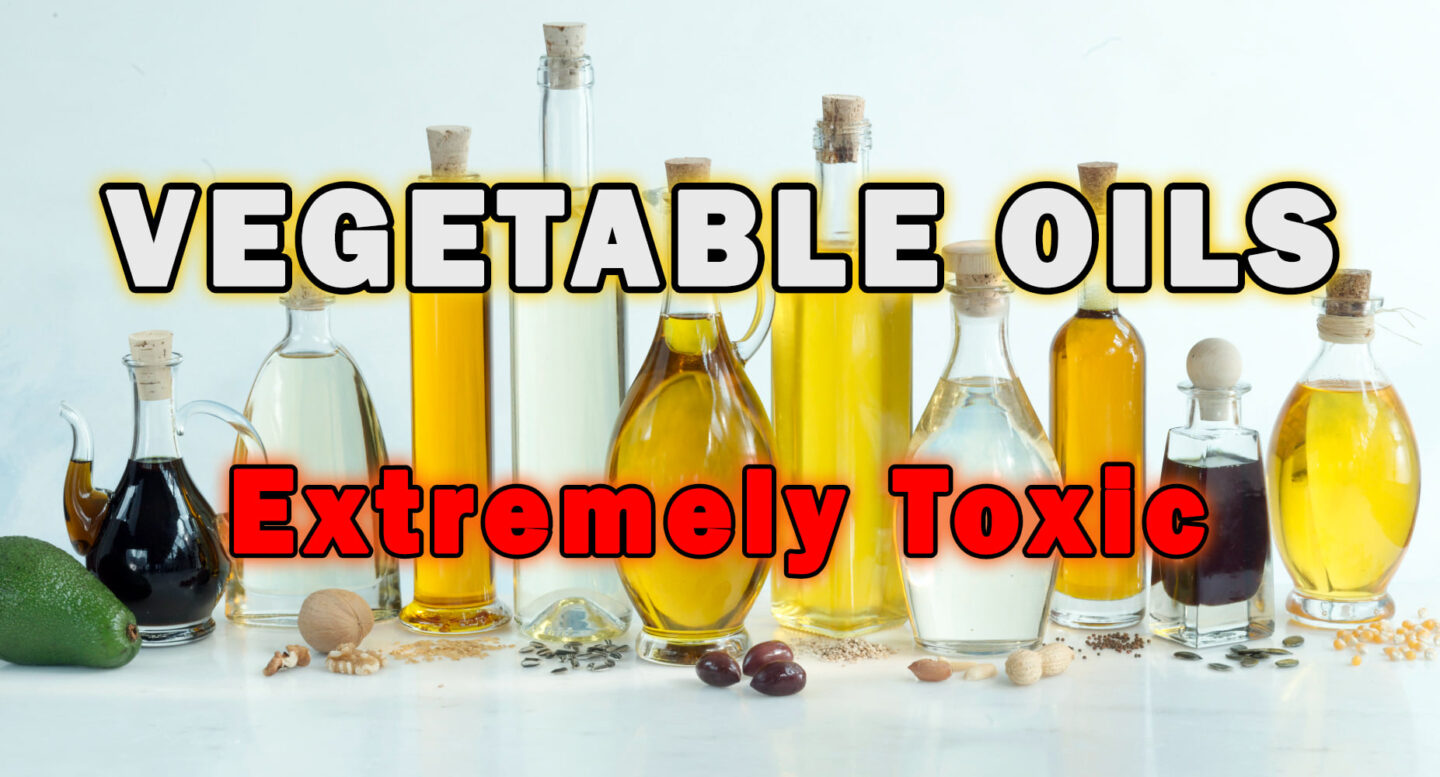Vegetable oils, or more correctly, highly processed seed oils, might be the most toxic food additive there is, and it’s found in almost every man-made food.
The history of vegetable oils goes way back to the late 1800’s and the manufacturing of soap and candles. In 1870, when crude oil was first discovered and replaced cottonseed oil as fuel for lamps, Procter and Gamble decided to use the unwanted and cheap cottonseed oil instead of the exclusive rendered pork fat to manufacture soap. In the early 1900’s P&G discovered that they could hydrogenate cottonseed oil and turn it into a solid liquid that resembled the properties of animal fat. And thus – from a highly toxic waste product – the first cooking oil (Crisco) was born in 1911.
So, yes. Vegetable oils are not made from vegetables, they are made from seeds. The most common ones are canola, corn, cottonseed, sesame, peanut, soybean, and sunflower. The low cost of these oils made them wildly popular all over the world while propaganda campaigns were launched towards animal fats. One example is the $1.5 million donation that the American Heart Association received in the late 1940’s from Procter and Gamble to kindly refer to these industrial seeds oils as “vegetable oils” – a ‘healthier’ alternative to animal fats. Shortly thereafter, a pseudoscientist named Ancel Keys, introduced his doctored diet-lipid hypothesis, in which he made it seem that saturated fats and cholesterol was linked to heart disease. Today, we know that it is vegetable oils, especially in combination with carbohydrates that causes cardiovascular disease and type 2 diabetes. Unfortunately, Ancel’s hypothesis has caused a lot of damage throughout the years, and many doctors and dieticians still believe in this old and deadly pseudoscience – although most countries have secretly changed their viewpoint and recommendations on saturated fat and cholesterol.
To understand how toxic and unhealthy these Frankenstein oils are, we simply need to take a look at the manufacturing process and the toxicity of the seeds themselves.
The seeds are gathered and removed from the plants. Next, they are heated to extremely high temperatures. This causes the very unstable unsaturated fatty acids to oxidize, creating very harmful byproducts.
After the heating process, the seeds are processed with a petroleum-based solvent, such as hexane, to increase the amount of oil that can be extracted from them.
Since the oils have a very unpleasant smell, the manufacturers then proceed to use several chemicals to deodorize the oils. This process produces trans-fats, which are well documented to be very harmful to our health.
Finally, they add even more chemicals to improve the color of the oils. The end result is a highly processed energy-dense, nutrient-poor oil with a lot of chemical residues, trans-fats, and oxidized byproducts such as aldehydes. Among the chemicals and additives are BHA, BHT, and TBHQ – synthetic antioxidants that have shown to have endocrine-disrupting and immune-disrupting effects. And even worse, since unsaturated (and poly-unsaturated) fats are highly unstable, the oxidation process continues after it’s been bottled and packaged – and even more so if influenced by heat, oxygen and/or light. While they are very harmful when used at home, the toxicity reaches extreme levels in fast-food restaurants where the oil is reused and reheated many times.
To add insult to injury, consuming these seed oils raises our omega-6 to omega-3 ratios, increasing inflammation, which has significant consequences to our health.
Our ancestral ratio of omega-6 to omega-3 used to be 1:1. In westernized modern diets heavy in seed oils, this balance has been found to be in the range of 10 to 1 and as high as 20 to 1.
And lastly, the overwhelming majority of the seeds used to manufacture these deadly oils are derived from genetically modified plants. Few studies have been conducted on the long-term safety of consuming GMO foods, but many countries are now recommending to limit or avoid them.
Seed oils (vegetable oils) have been linked to asthma, cognitive and mental health diseases, diabetes and obesity, cardiovascular- and heart disease, gut diseases (IBS and IBD), infertility, macular degeneration, and osteoarthritis.
So, to sum up. There is not a single scenario where ‘vegetable oils’ would be useful or recommended – and this includes any form of margarine or vegetable ‘butter’. It’s all toxic sludge. Also, there is no evidence in any literature that the human body needs unsaturated or polyunsaturated fatty acids from plants – the opposite is true as they are very unhealthy. You only need saturated fats and some polyunsaturated fats in the form of omega-3. All found in animal foods.
So, instead of these deadly seed oils, when cooking and adding fatty acids to your diet, use butter, ghee, heavy cream, lard, tallow, duck fat, and, in the worst case scenario, coconut oil.
